Cubs answer doubts with historic comeback; will Chicago get Dodgers or Nats next?

LOS ANGELES—The most dangerous team in baseball just got more dangerous.
The Cubs were already the heaviest postseason favorite since the 1998 Yankees. What their historic NLDS Game 4 comeback Tuesday in San Francisco did was to fortify their ability to play under duress.
Channeling the 1986 Mets—one of the greatest comeback teams of all time—Chicago came from three runs down in the ninth to clinch a series win. Only those Mets, against Houston in the NLCS, and these Cubs ever mounted such a comeback so big and so late to wrap up a series.
With one epic rally that acted faster than Xanax, Chicago turned anxieties about a possible Game 5 at a nervous Wrigley Field into more muscular confidence for a team of extroverts that already knew it was darn good. The Cubs just became a more difficult opponent in the NLCS for the Nationals or the Dodgers, who will play, in effect, a one-game playoff—Game 5 Thursday in Washington—to see who gets to rattle Chicago's cage next.
Who knew the Cubs had it in them? They had sailed so easily through the season that how they played when cornered was one of the few questions about them. The ninth-inning rally highlighted how much Chicago has improved from last year. President of baseball operations Theo Epstein knew he needed a better rally team: The 2015 club was the worst in baseball at getting runners in from third with less than two outs, mostly because it struck out more times than any team in the majors. So Epstein added free agents Jason Heyward and Ben Zobrist, both of whom brought contact and on-base skills. Kris Bryant learned from Anthony Rizzo about two-strike approaches and about tapering the extreme upward angle of his swing. Wild-swinging Javier Baez worked on improving his stroke, especially with two strikes.
‘We Don’t Quit:’ Cubs rejoice, breathe easy after epic rally to reach NLCS
All of those players contributed to Tuesday's stunning comeback. Facing reliever Derek Law, who took over for starter Matt Moore after Moore had thrown 120 pitches over eight shutdown innings, Bryant started the rally with a ground-ball single.
Giants manager Bruce Bochy summoned lefty Javier Lopez to face an ice-cold Rizzo, the team’s high priest of two-strike hitting. Lopez walked him.
Bochy brought in righthanded closer Sergio Romo. Zobrist scorched a run-scoring double to right, scoring Bryant and moving Rizzo to third.
Cubs manager Joe Maddon then pulled his 95-RBI shortstop Addison Russell for Chris Coghlan, a .188 hitter. Rather than have Romo pitch to Coghlan, Bochy rolled the reliever dice again and called for lefty Will Smith. Bad move: Maddon countered with Willson Contreras. Bochy passed on having a .195 hitter against righthanders (Coghlan) face his closer (Romo), and instead wound up with a .311 hitter against lefthanders (Contreras) matched up with a guy who had one career save and who is not accustomed to such spots (Smith). Huge advantage, Maddon.
Contreras smashed a two-run single to center. The game was tied, 5–5.
Bochy had used four relievers to pitch to four batters—without getting an out. The three-run lead had disappeared.
Maddon asked Heyward to bunt, though Heyward had only two sacrifice bunts in his career. He bunted right back to Smith for the start of what should have been a routine double play, but shortstop Brandon Crawford threw the ball away, sending Heyward to second.
Bochy tried another pitcher, Hunter Strickland. He made Baez look foolish with a first-pitch slider, a pitch he can’t hit when properly located. Oddly, Strickland followed that with two straight fastballs, the second of which Baez whacked to center to score Heyward with the tie-breaking run.
Baseball in 2016 is built on strikeouts and home runs. But the multi-hit rally is October’s most valuable signature. In a span of six batters—all of whom reached base and half of whom were not part of the 2015 Cubs—Chicago crossed at least a tributary of the Rubicon. They went from a team that believes to a team that knows. They already were fundamentally different from last year as a more versatile offensive team. Now they are empowered by having pulled off one of postseason history’s greatest rallies.
Wrigley Field's Most Memorable Moments
April 20, 1916: First Cubs game
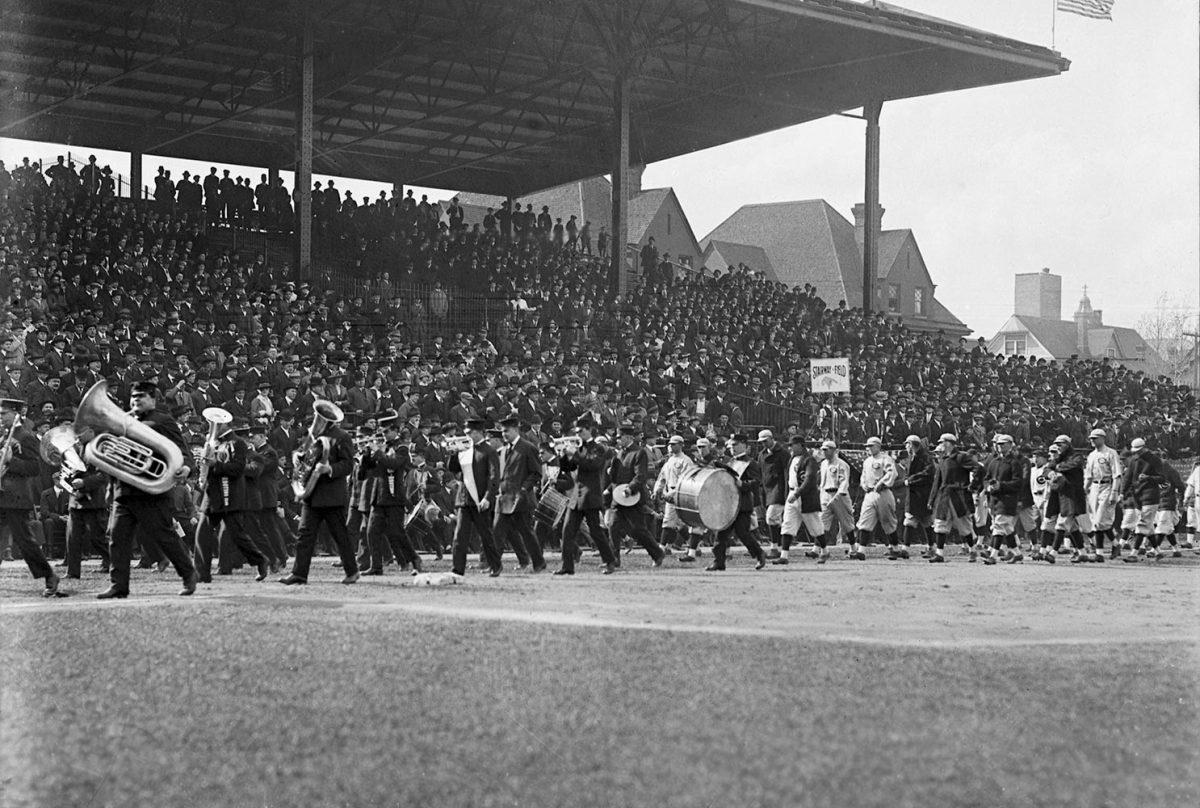
May 2, 1917: The Double No-hitter between Jim “Hippo” Vaughn and Fred Toney
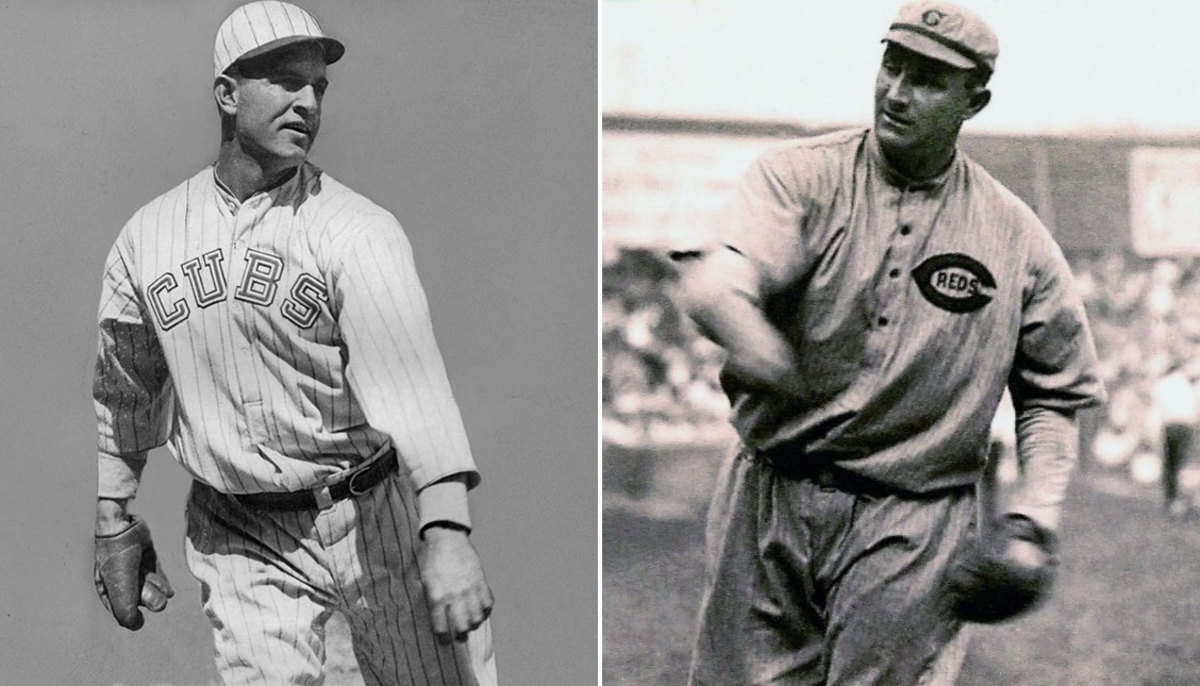
Oct. 1, 1932: Babe Ruth’s Called Shot
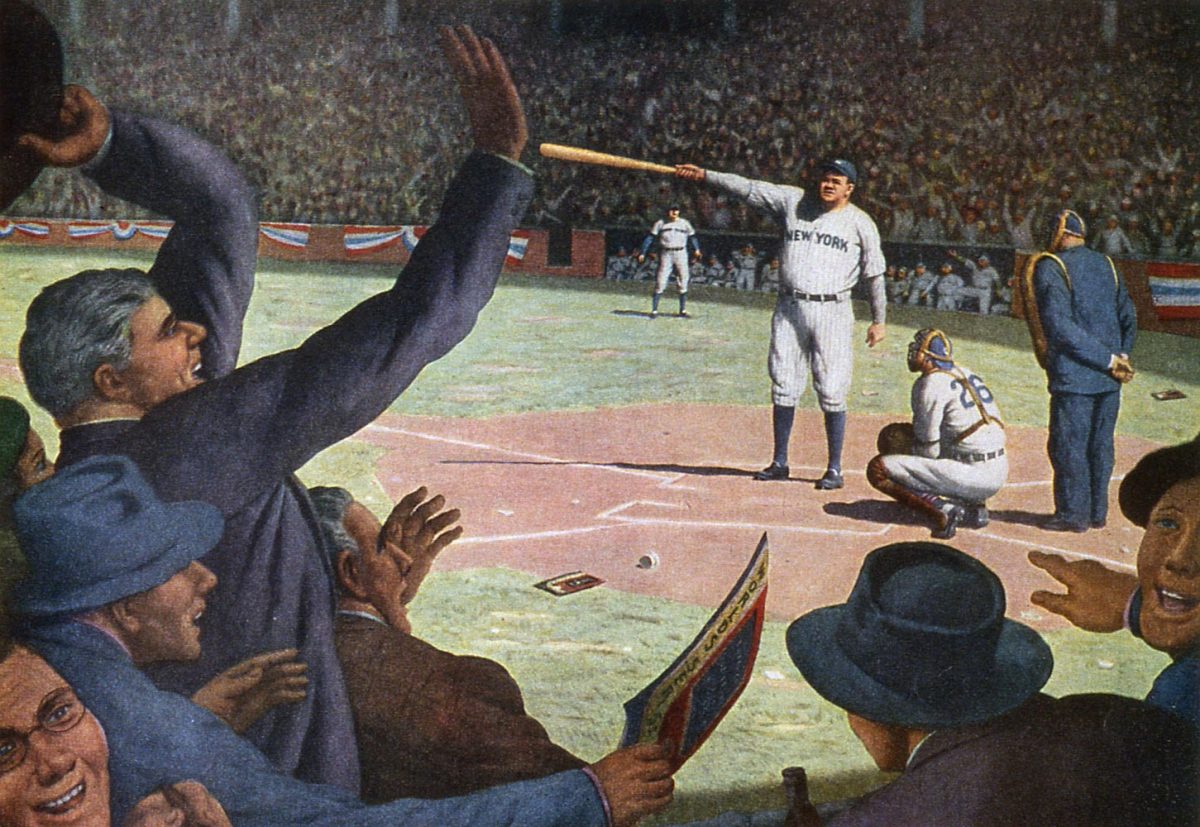
1937: Ivy appears
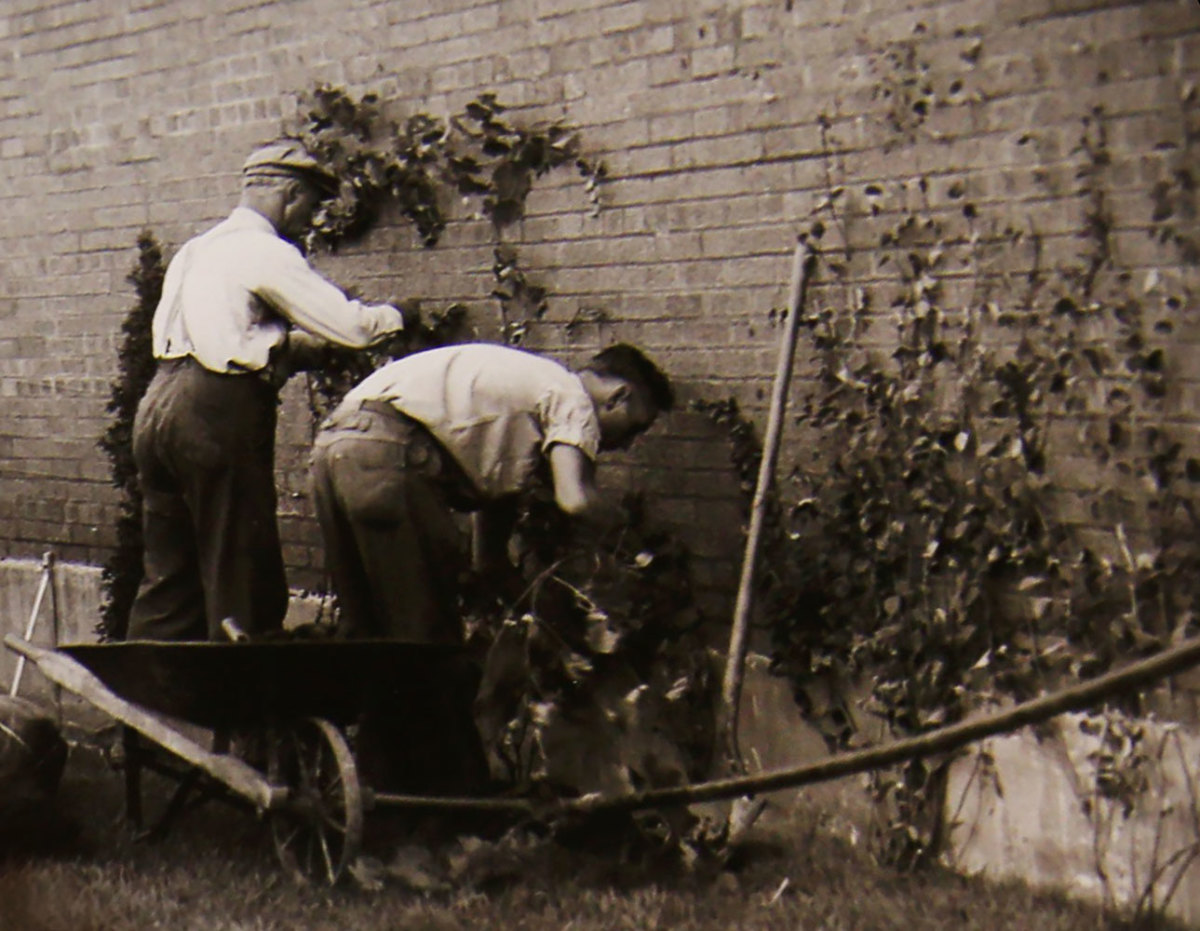
Sept. 28, 1938: Gabby Hartnett’s Homer in the Gloamin’
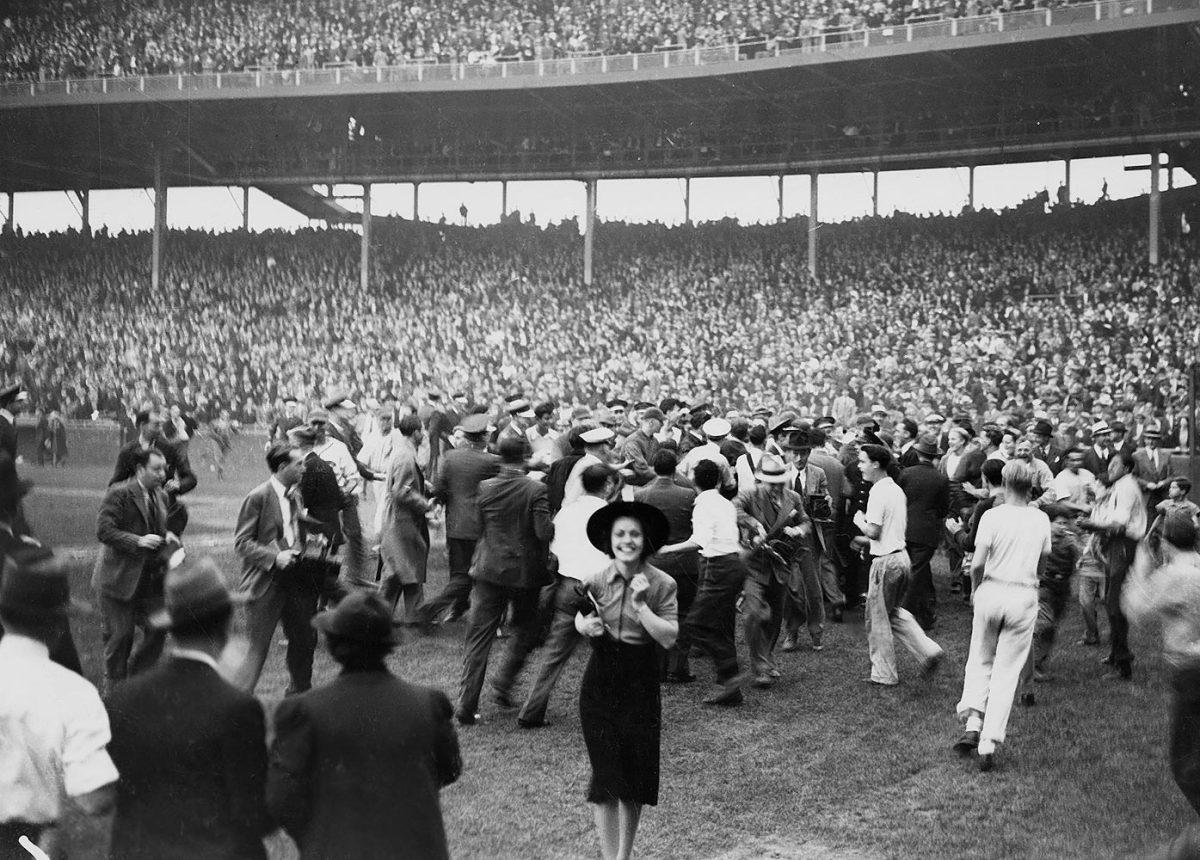
Oct. 6, 1945: Curse of the Billy Goat
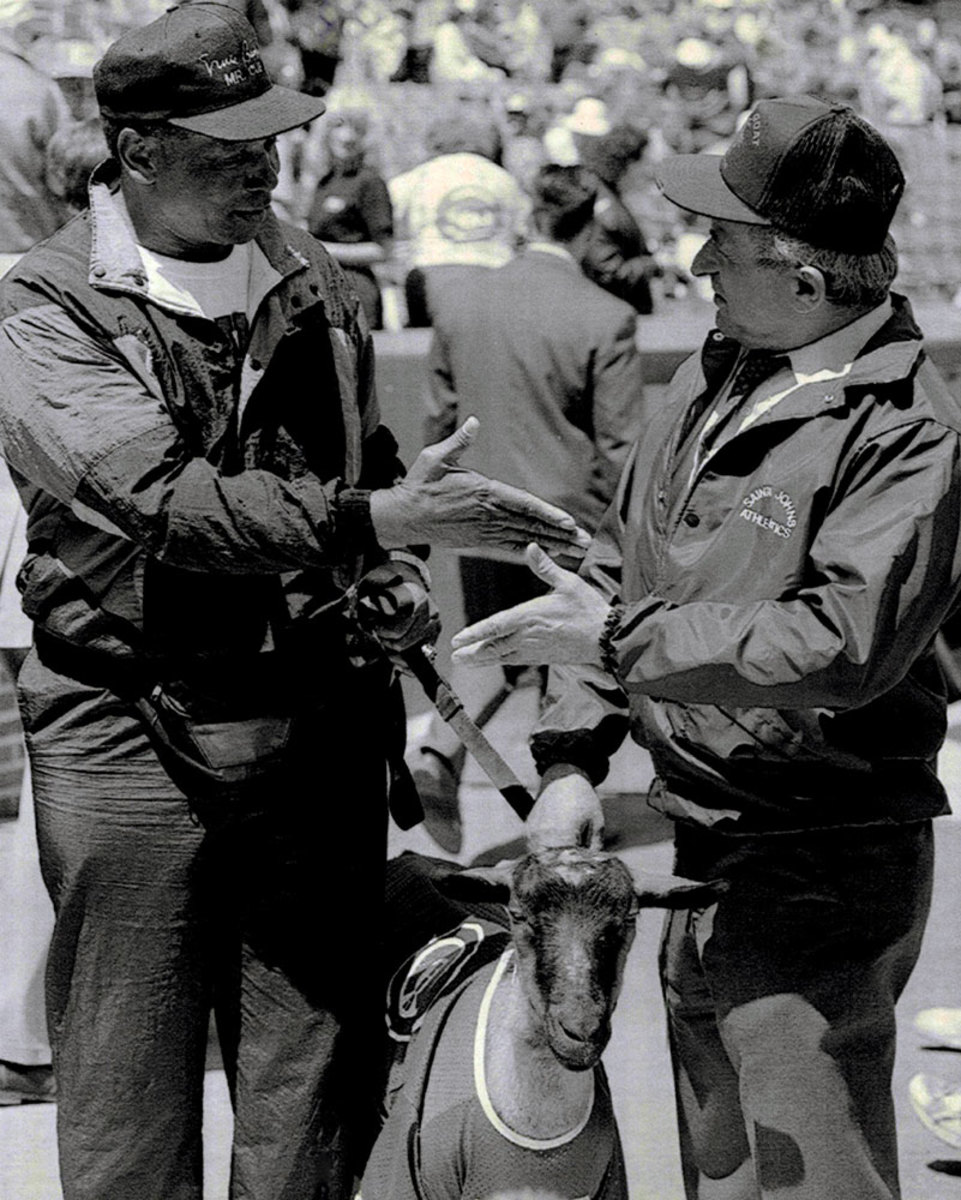
Pictured: Ernie Banks with Sam Sianis, owner of The Billy Goat Tavern, in 1994.
May 13, 1958: Stan Musial gets his 3,000th career hit
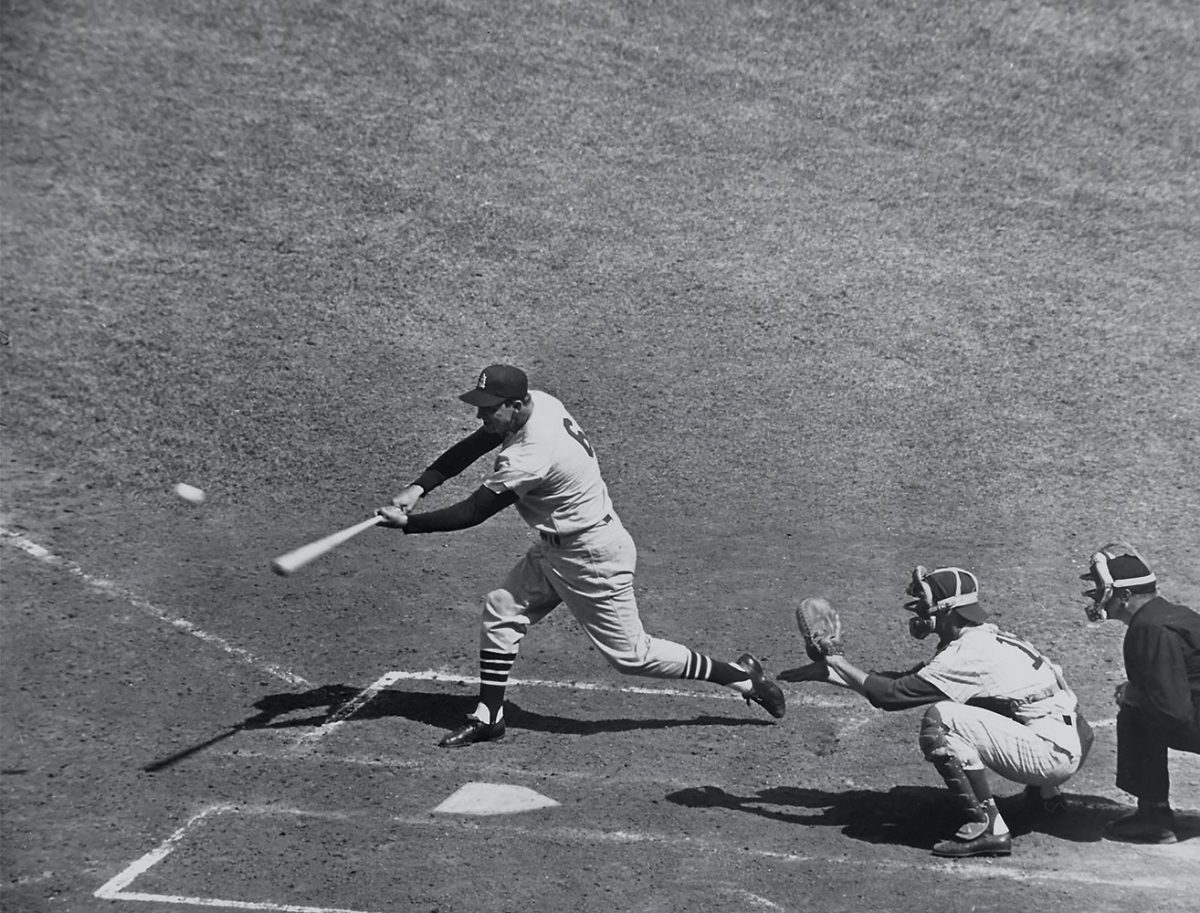
Dec. 29, 1963: Bears beat Giants 14-10 in the NFL Championship game
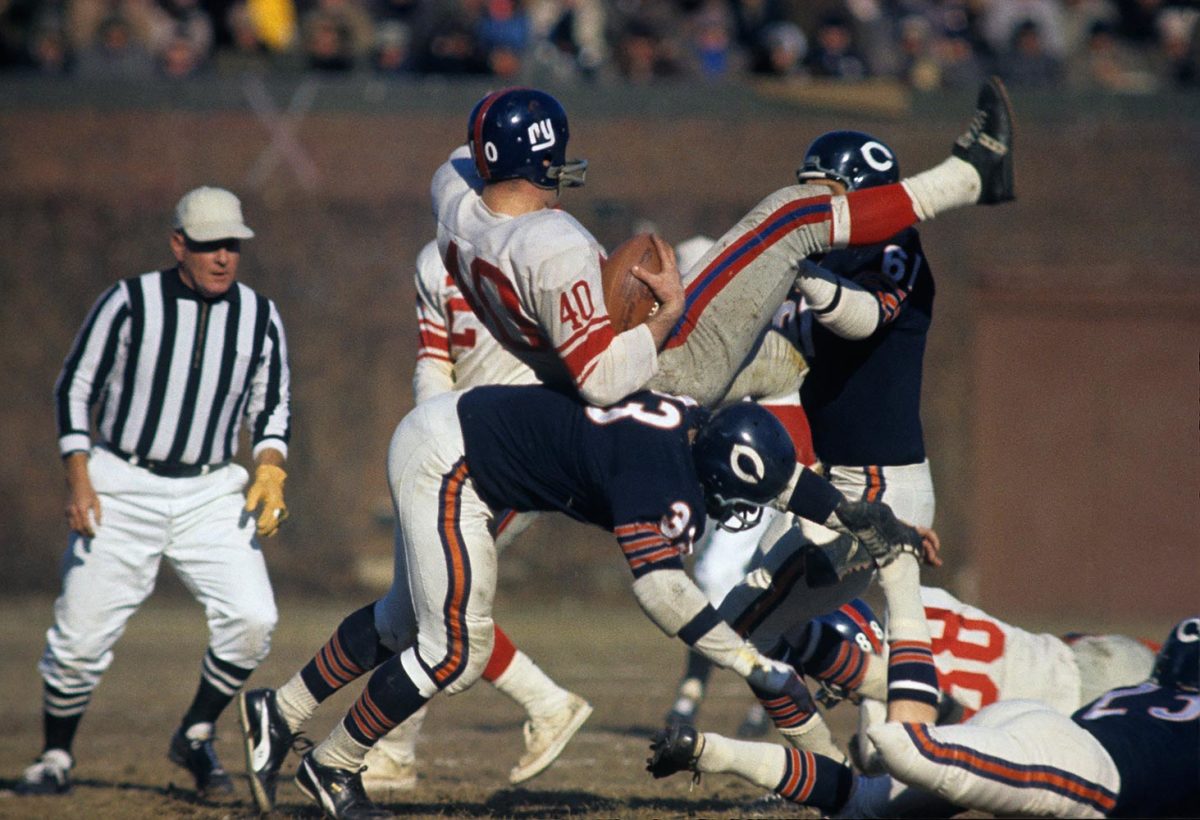
Dec. 12, 1965: Gale Sayers scores six touchdowns
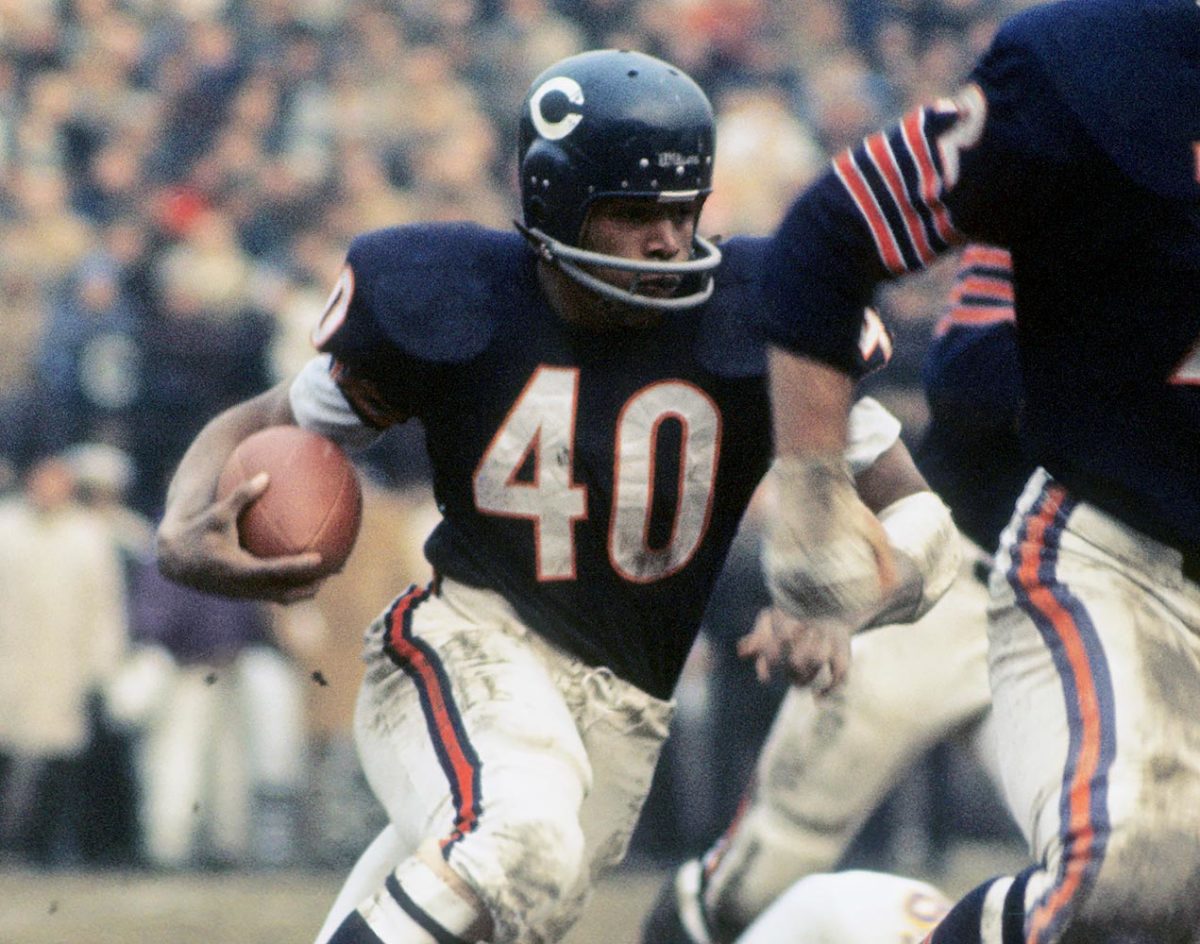
May 12, 1970: Ernie Banks hits his 500th home run
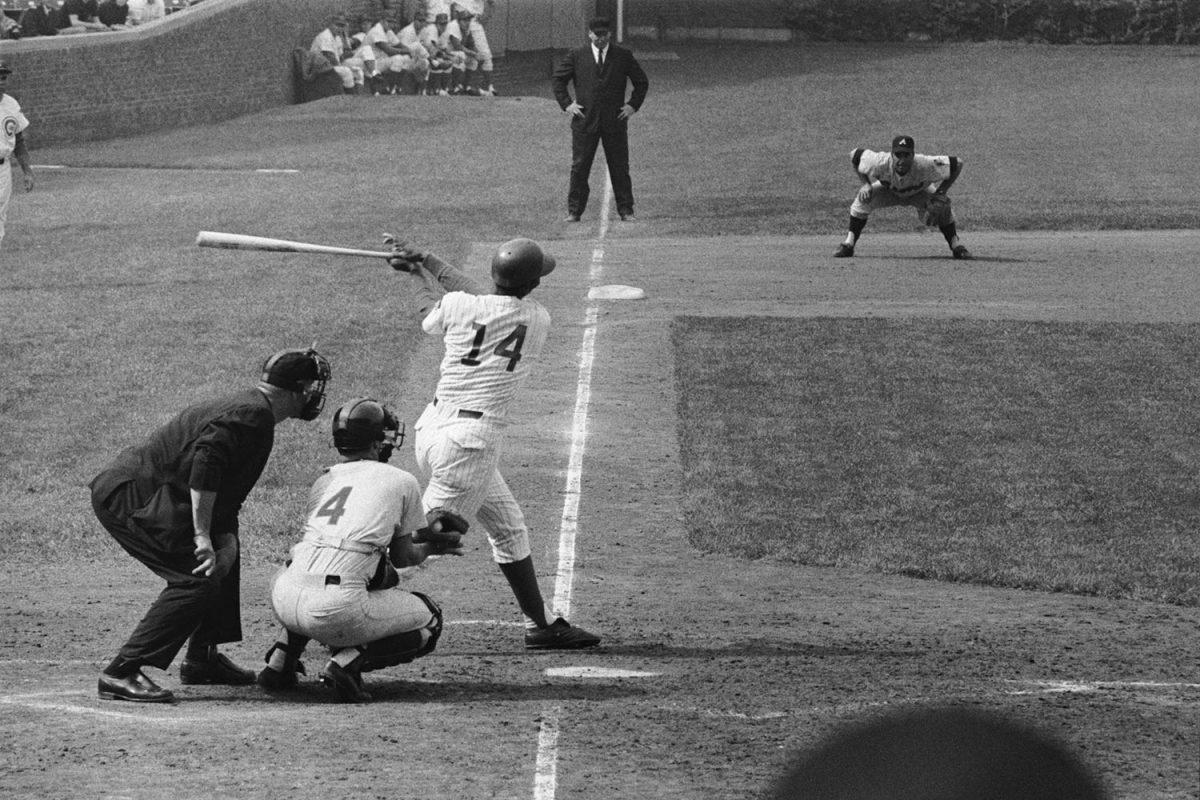
Sept, 2, 1972: Milt Pappas' near-perfect game, missed by one pitch on a controversial ball four
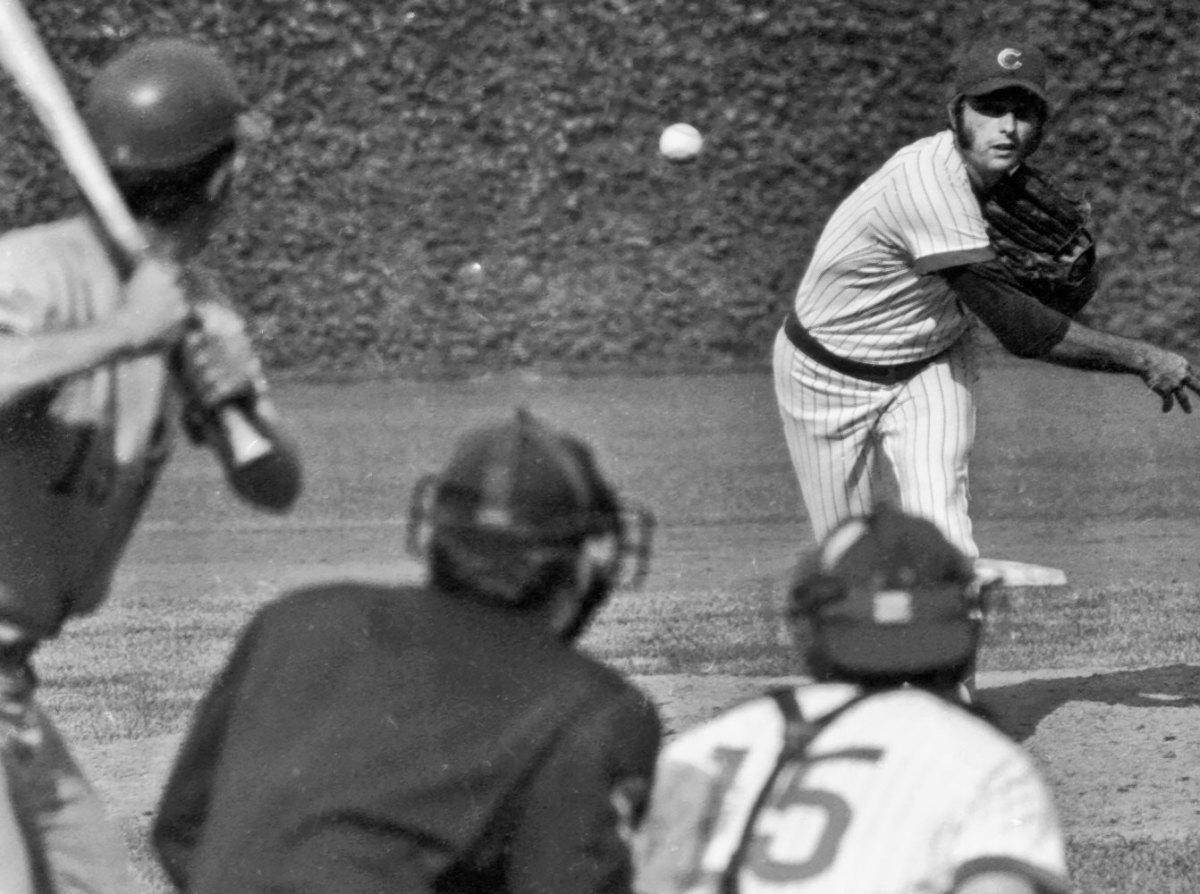
April 17, 1976: Mike Schmidt's four homers in the Phillies comeback, down 13-2, to win 18-16
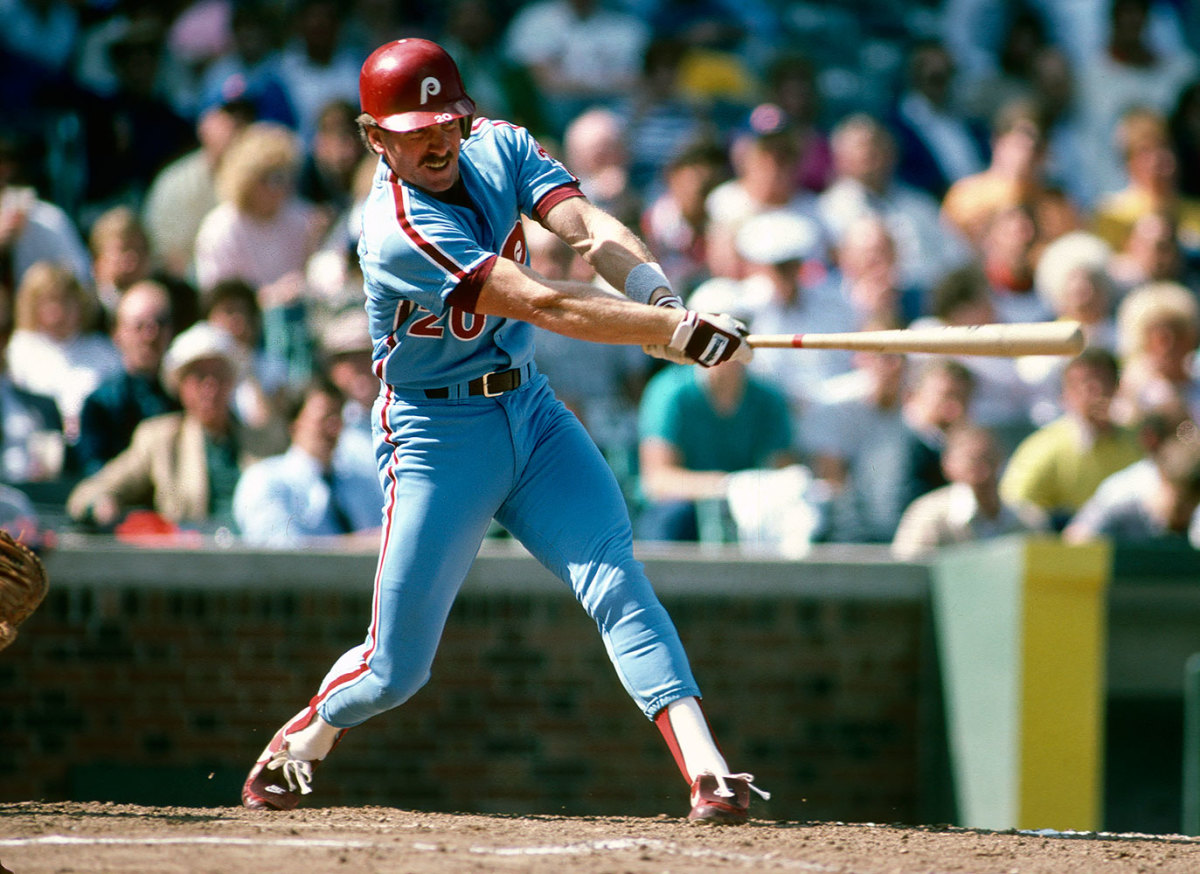
May 17, 1979: 45 total runs scored in the Phillies 23-22 win over the Cubs
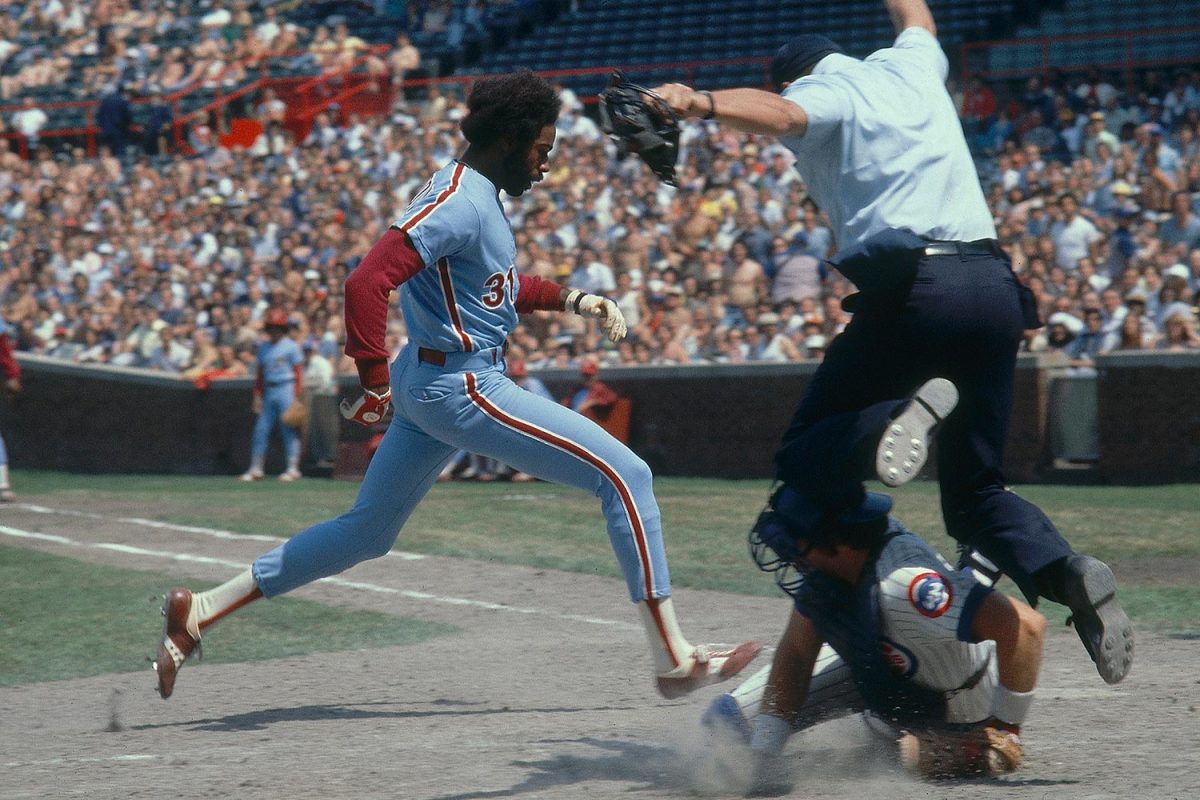
June 23, 1984: The Sandberg Game — hits two home runs and seven RBIs in the Cubs 12-11 win over the Cardinals
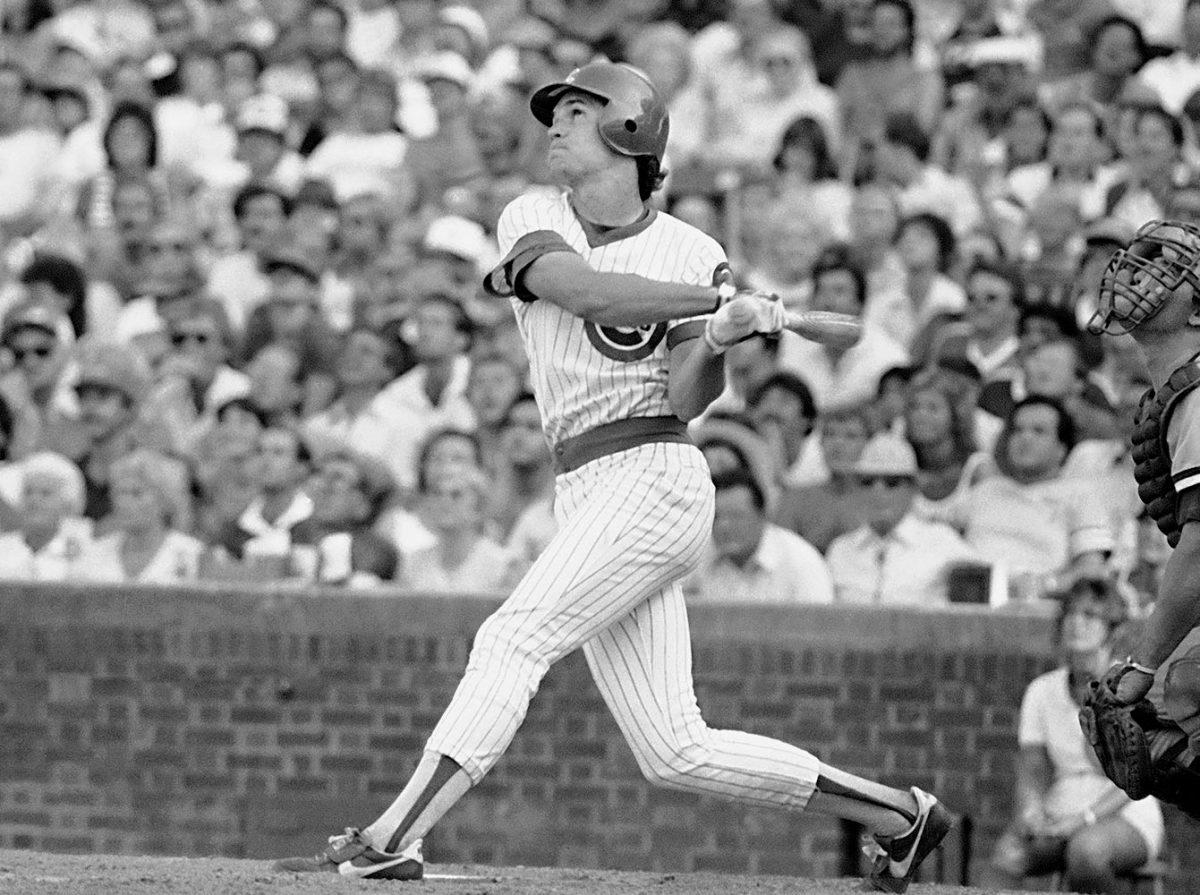
Aug. 8, 1988: First night game
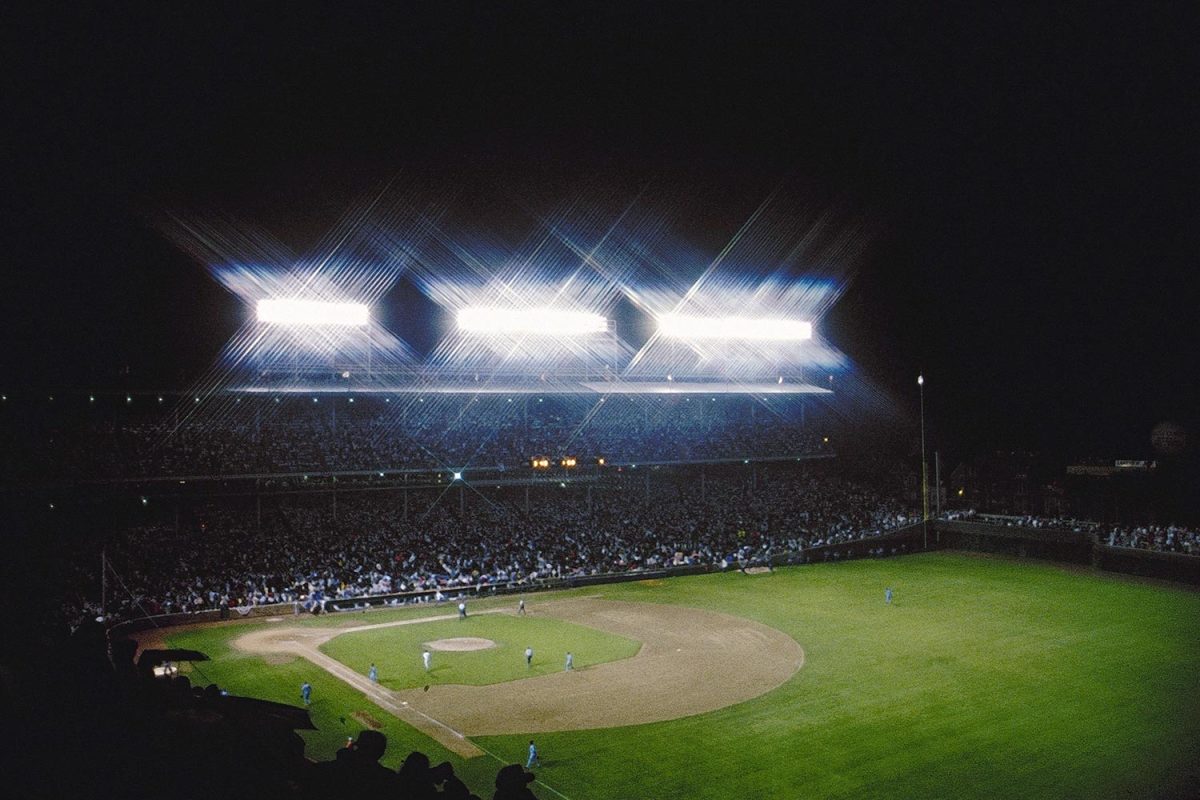
July 10, 1990: Cubs host most recent All-Star Game
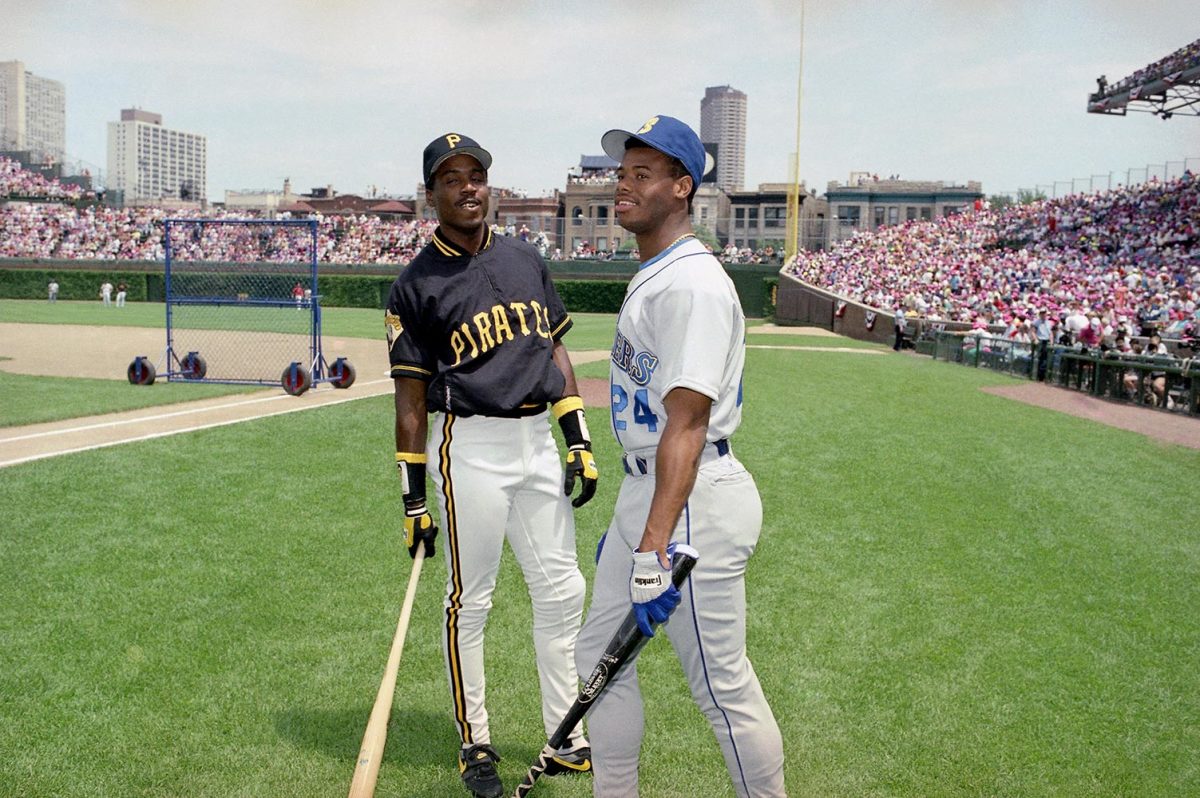
April 13, 1994: Michael Jordan plays for White Sox in Windy City Classic
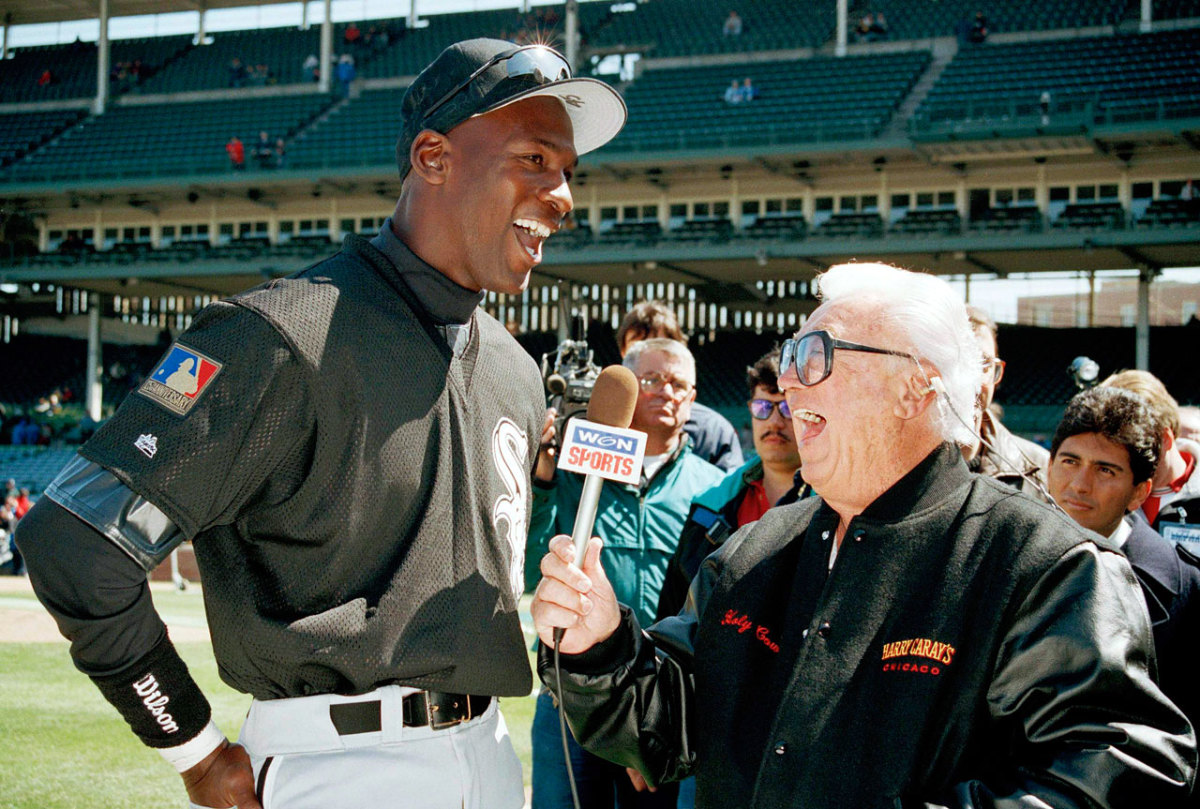
May 6, 1998: Rookie Kerry Wood strikes out 20 Astros
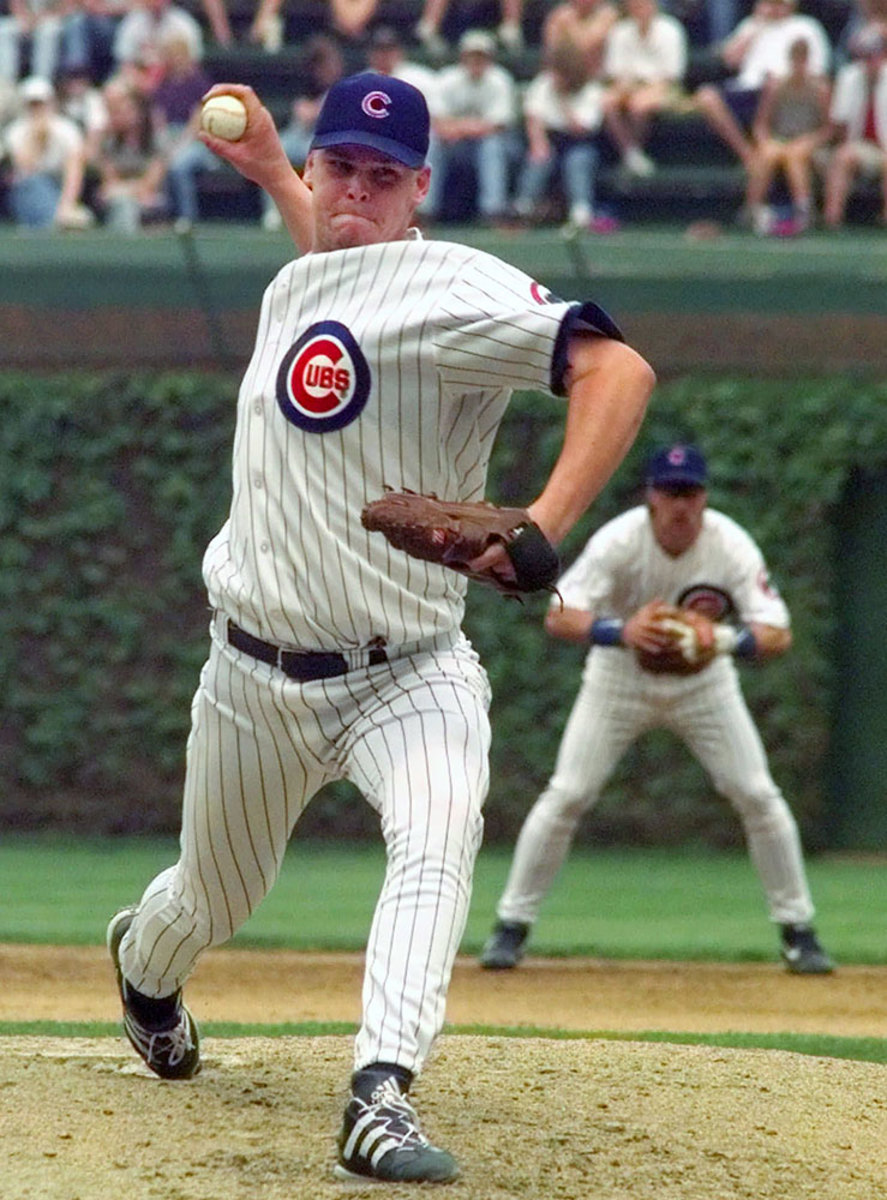
Sept. 13, 1998: Sammy Sosa hits 61st and 62nd home runs
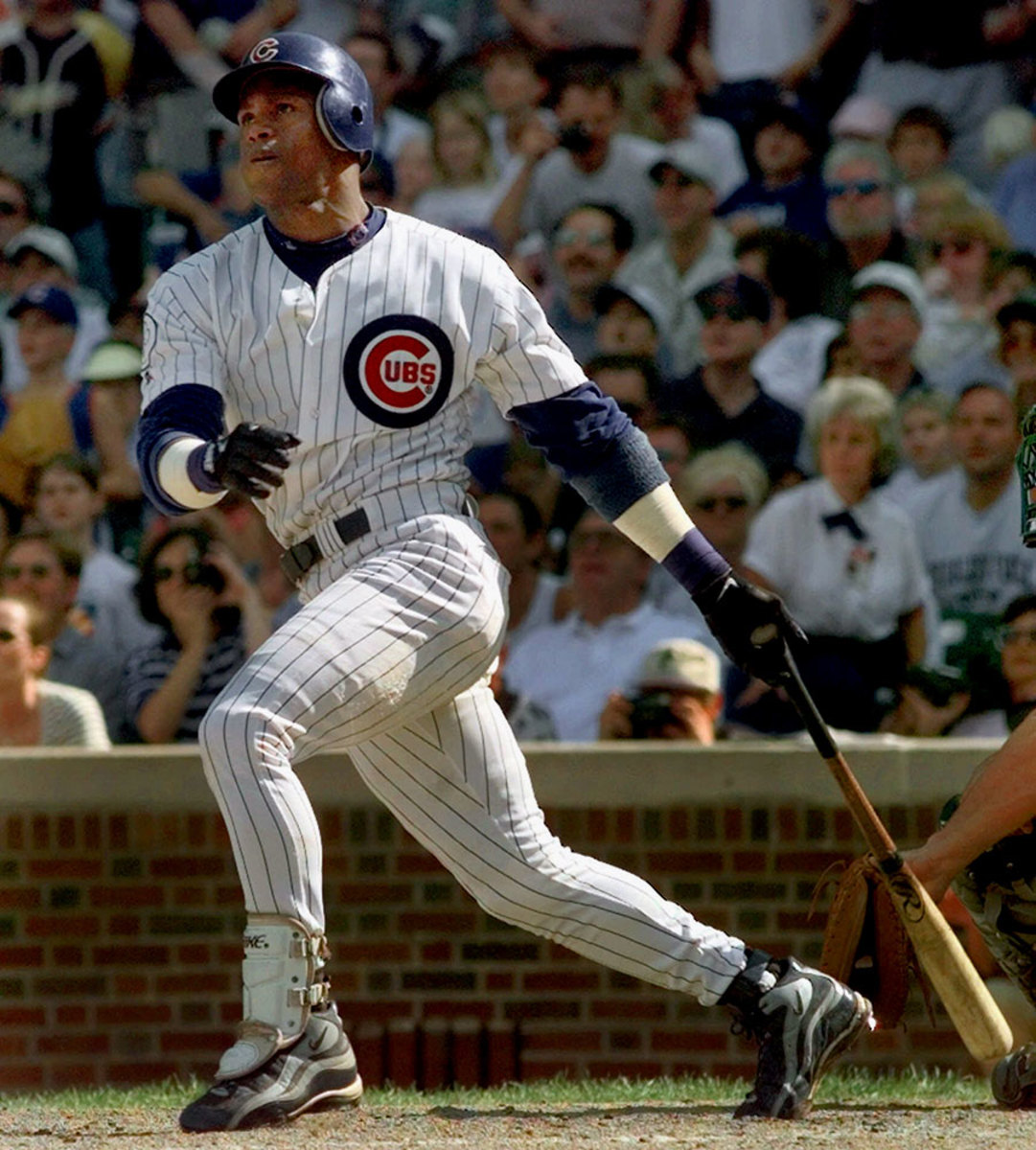
Oct. 14, 2003: The Bartman game
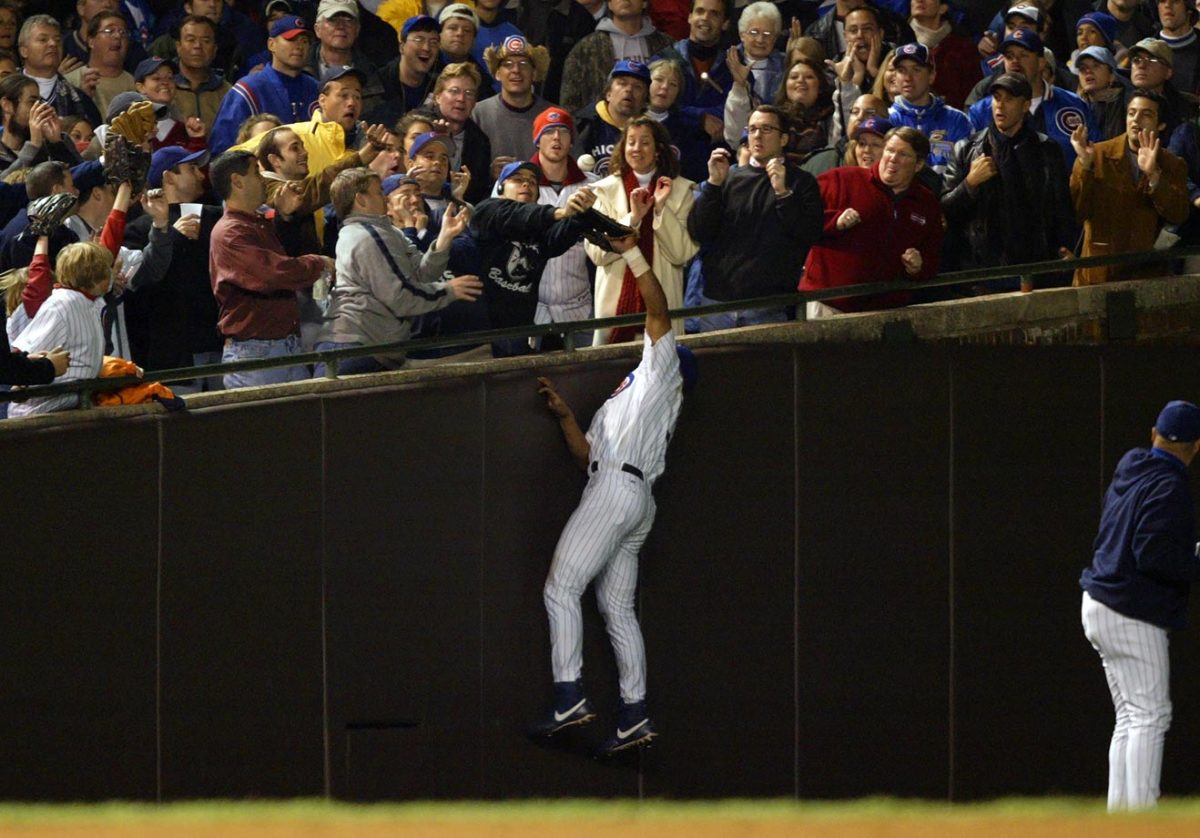
Aug. 5, 2007: Mets’ Tom Glavine wins his 300th game
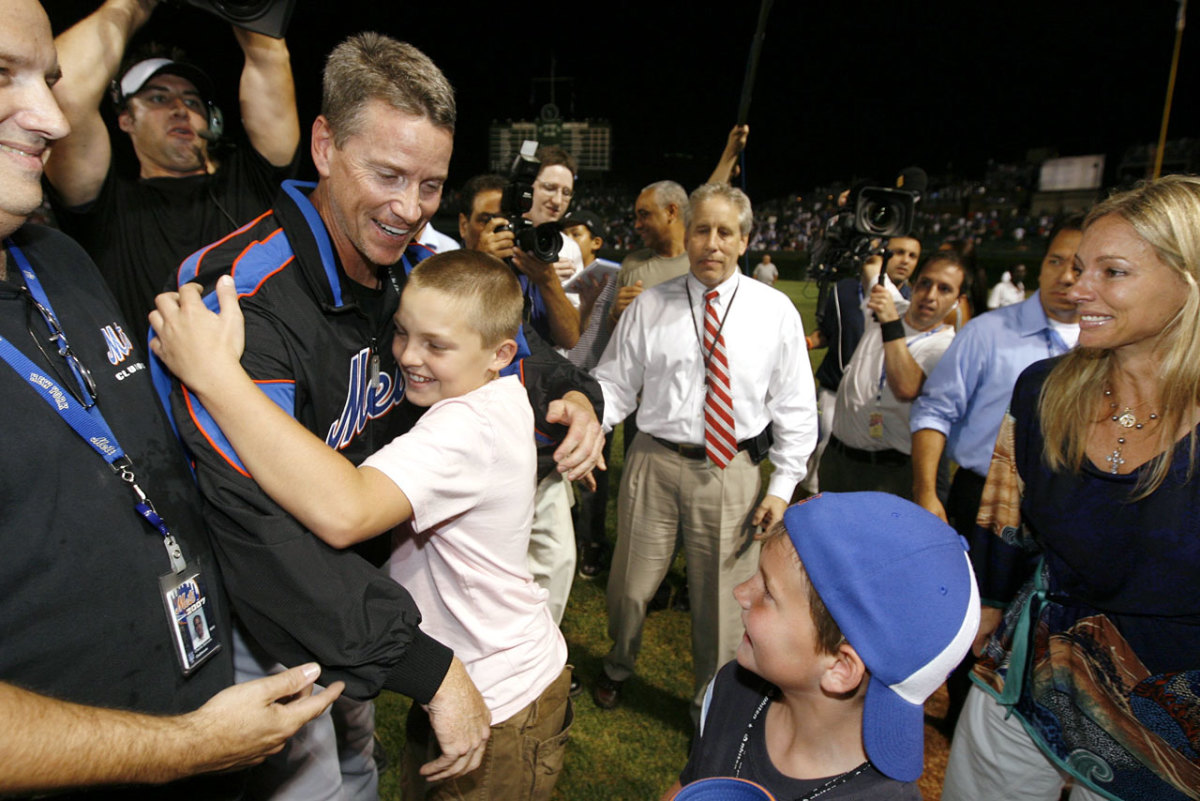
Jan. 1, 2009: Red Wings beat Blackhawks 6-4 in Winter Classic
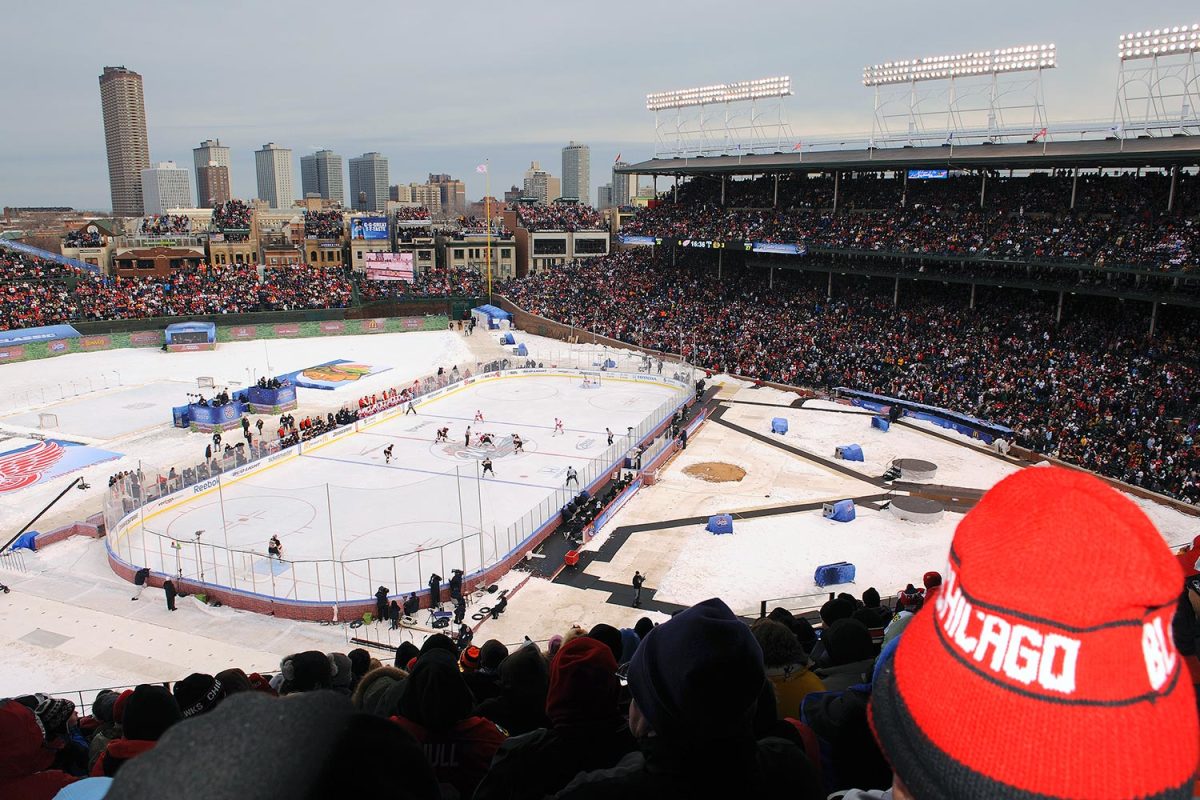
Nov. 20, 2010: Using only one end zone for offense, Illinois beats Northwestern 48-27
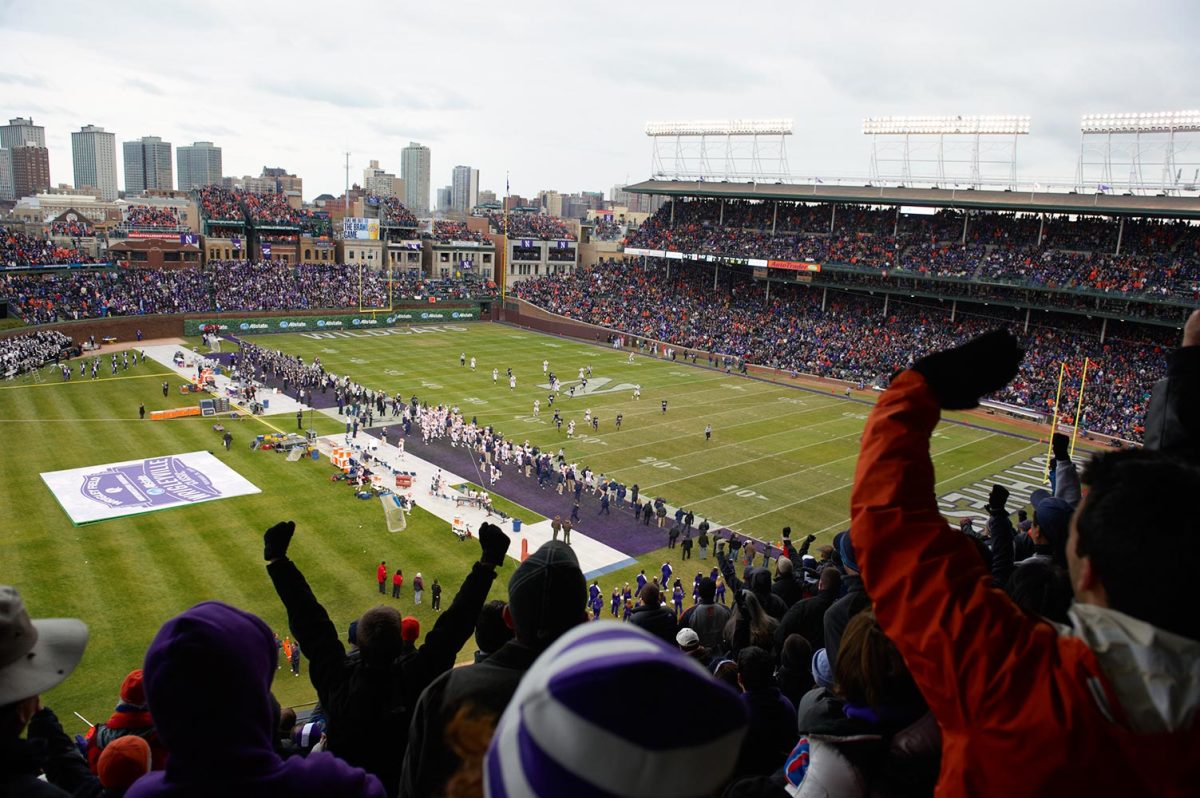
2. Kershaw Comes Through
Dodgers pitcher Clayton Kershaw does not have a W next to his name for all of his hard labor Tuesday. The box score from NLDS Game 4 says he gave up five runs against Washington. But make no mistake, Kershaw came up big when his team needed him most—facing elimination, again.
Start with this: Kershaw has started four postseason games in the past four years on short rest. All the other pitchers in baseball combined have done it only seven times. His mound opponent in Game 1, Max Scherzer, has never made a start on three days of rest (following a start), and the idea of him doing so in this series never had a germ of happening. (Scherzer said breaking the routine of pitching on the fifth day would have a mitigating effect on the start to follow the one with short rest.)
So Kershaw is taking the ball when others won’t or can’t. And when he does so, he never wants to yield it. Despite throwing 27 pitches in the first inning, Kershaw took the ball two outs into the seventh inning, when he convinced manager Dave Roberts he could get Bryce Harper, representing the tying run, with two runners on.
It was an at-bat for the ages: the three-time NL Cy Young Award winner against the reigning NL MVP in their youthful primes. It lasted eight pitches. The final offering—a full-count fastball, the 110th pitch of the afternoon for Kershaw—missed for ball four. Kershaw departed with 11 punchouts and a 5–2 lead but left the bases loaded. Relievers Pedro Baez and Luis Avilan then took graffiti to his artful game, allowing all three inherited runners to score.
Los Angeles rallied for a run in the eighth for the victory, which was credited to reliever Joe Blanton. But Kershaw earned more respect for his postseason pitching. Others don’t even try pitching on short rest. Kershaw has made it an annual event, four years running. It was the third time the Dodgers had won a postseason game he started on short rest, two shy of Andy Pettitte's record in the wild-card era (since 1995).
"For Clayton to leave every bit of himself out there speaks to why he's great," Roberts said. "That's why he's the best pitcher on the planet."
Dodgers’ heroics save season, bullpen against Nationals to force Game 5
3. Capital Moment
The Nationals will play at home in Game 5. They have the better starting pitcher taking the mound. They have the hotter hitters.
They also have the most pressure.
All those ingredients are somehow true. Washington has the edge on paper, but it also has a nagging fear that this franchise just can’t get out of the first round.
The wounds are still new. There's the NLDS Game 5 collapse against the Cardinals in 2012, when the Nationals blew a two-run lead in the ninth inning. There's the Matt Williams fiasco in Game 2 of the 2014 NLDS against the Giants, when he lifted Jordan Zimmermann in the ninth inning of a two-hitter only to watch San Francisco rally to win the game and take a 2–0 lead in a series it would win in four. Only St. Louis has won more regular-season games over the past five years than Washington, and yet the Nationals have the longest drought in the league without getting to the LCS—35 years, when they were still in Montreal as the Expos and beat the Phillies in the Division Series before losing to the Dodgers.
Manager Dusty Baker was brought in to fix these first-round blues. Before Game 4, as a man who likes to hunt and fish, Baker said trying to close out a series is like fighting prey that’s down to its last breath. That’s when the fight within it is the fiercest.
When the Dodgers fought to live for another day in Game 4, Baker had lost for the eighth straight time with a chance to clinch a series, dropping his career record in such games to a cruel 3–11.
In Game 4, Baker allowed righthander Blake Treinen to remain on the mound while lefties Andrew Toles, Andre Ethier and Chase Utley all reached base to combine for the game-breaking run in the eighth inning. Only after the go-ahead run scored did Baker move to bring in a lefty, Sammy Solis, against the worst-hitting team against lefties not just in 2016 but in the history of playoff teams.
"When you look at it, maybe it's just their day,” Baker said. “I mean, we had Solis warming up, but we really didn't want to use Solis, unless it was an emergency. That was an emergency situation, but I didn't want to bring a tired Solis out there to face [potential pinch-hitter] Howie Kendrick, because we were trying to stay away from Howie Kendrick, because he's been hitting lights-out. I mean, he's been hitting the ball hard. So you've got to pick your poison. You know, didn't work.”
